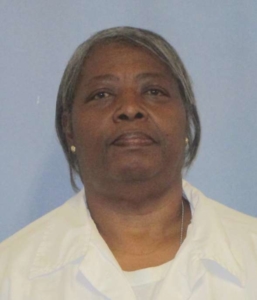Executive Director’s Corner: Leola Harris, a dying woman DENIED parole.
As the Executive Director of Redemption Earned, I attended our first medical parole hearing before the Alabama Board of Pardons and Paroles. This week, the Parole Board denied medical parole to a dying woman, a Redemption Earned client, Leola Harris.
This denial by the Parole Board was a blatant violation of its role in the criminal justice system. The Alabama code sets out the high standard an incarcerated person must meet to be awarded medical parole.
According to the testimony of Felicia Hall-Grace, Ms. Harris’s severe health conditions warrant parole. Ms. Grace is a registered nurse who is also a nursing instructor and case manager with 28 years of nursing experience. Ms. Harris was convicted of the murder of a homeless man she had befriended who entered her home. Even though she had no criminal history, not even a parking ticket, Ms. Harris was sentenced to 35 years in prison. She has served 19 years of that sentence as a model prisoner. The Parole Board has limited prospective parolees to 4 minutes if they have no legal representation or advocate and 6 minutes if they are fortunate enough to have an advocate. After listening to 6 minutes of testimony and argument from two Redemption Earned staff attorneys and an expert witness, with no family present in opposition, the two Parole Board members denied parole and set her re-hearing off for a maximum of five years.

Leola Harris, Sentence Date 11/24/2003
Medical testimony revealed that this is a death sentence as Ms. Harris suffers from:
- End Stage Renal Disease (ESRD)
- Insulin Dependent Diabetes Mellitus (IDDM)
- Hypertension (HTN)
- AV Fistula and Dialysis
The Alabama Department of Corrections, based on Ms. Harris’s severe life-threatening medical conditions, her multitude of disabilities, and lengthy stays in the infirmary, certified her to the Parole Board as meeting the statutory criteria for medical parole.
Even though Redemption Earned was fortunate to secure a nursing home placement for Ms. Harris, the Parole Board ignored the certification. The Parole Board’s responsibility is to ask and answer two questions: Has the prospective parolee been adequately punished and is the prospective parolee a threat to public safety? Any reasonable person would conclude that 19 years is a sufficient sentence for a 71-year-old woman who is dying in prison. No one would say that a dying woman, who is confined to a wheelchair, who cannot perform basic personal body functions unassisted, is a danger to the public. This Parole Board not only failed Ms. Leola Harris, but they also failed the taxpayers of the State of Alabama. This denial of medical parole to a wheelchair- bound, weak, and dying woman is an injustice that the people of Alabama ought not accept or be forced to pay for.
-Sue Bell Cobb
Executive Director of Redemption Earned and Former Alabama Supreme Court Chief Justice


